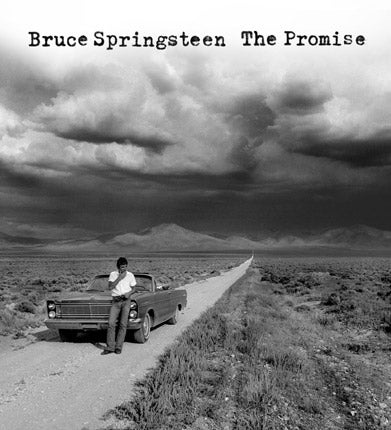Album: Bruce Springsteen, The Promise (Columbia)
Out of the 'Darkness' – why Bruce was born to run and run

Your support helps us to tell the story
From reproductive rights to climate change to Big Tech, The Independent is on the ground when the story is developing. Whether it's investigating the financials of Elon Musk's pro-Trump PAC or producing our latest documentary, 'The A Word', which shines a light on the American women fighting for reproductive rights, we know how important it is to parse out the facts from the messaging.
At such a critical moment in US history, we need reporters on the ground. Your donation allows us to keep sending journalists to speak to both sides of the story.
The Independent is trusted by Americans across the entire political spectrum. And unlike many other quality news outlets, we choose not to lock Americans out of our reporting and analysis with paywalls. We believe quality journalism should be available to everyone, paid for by those who can afford it.
Your support makes all the difference.Darkness on the Edge of Town: The Lost Sessions is the subtitle, which ought to engender palpitations in big-hearted boys and girls of a certain age.
Darkness was Springsteen's melancholy punk album, which is not to say that it was obnoxious. Far from it: it is as intrinsically warm and cardioactive as any of its brethren. But, following the tweezered afflatus of Born to Run in 1975 (not everyone dropped their knickers on first contact, y'know), Darkness ripped out of its alley three years later like a threat – muscular, pointed, not windy. It belonged to its own time, not some retooled 1962, and it remains the most convincingly "street" of all Springsteen's records, not because it romanticises his rust-belt life any differently to the others, but because it sounds as hard and functional as a sidewalk.
The Promise, then, is the songs which didn't make the cut. Add the 21 presented here to the stuff on the Tracks set and that amounts to more than 40 unused performances. Some sessions. Some melancholy.
Springsteen himself still thinks they released the right ones at the time, and he's not wrong. But there is plenty here to warm the cockles, and indicate a maturing editorial method. Yes, he's still in thrall to Spector, Orbison, Dylan, the Brill and all, but there's a growing awareness in these songs that mere stylised revivalism leads only to a dead end. And every fugitive teen knows that's the last place you want to get stuck.
So while Spectorishness abounds – "The Brokenhearted", "The Little Things" – so does a rather more evolved, less worked-up ensemble sound arising from the sweat of six guys labouring over chord sequences.
An alternate (original?) version of "Factory", "Come On (Let's Go Tonight)", follows the same dolorous footsteps but does it with David Lindley's fiddle drone, slightly different lyrics and a wholly developed sense of the beauty in austerity. Elsewhere there's an even doomier version of "Racing in the Street"; "Candy's Day", a minor-key adumbration of "Candy's Room"; and the extra-canonical songs you may know but not possess: "Fire", "Because the Night", etc.
Then there are the "new" songs, the ones yet to see the light of day. As you'd expect there are wishful epics (the title track revisits "Thunder Road" in shades of gloom) while "City of Night", which closes the album, is a scrap of a song clearing space for an unlisted votive love ballad aimed like a gimlet at somebody's ventricles.
What don't we get that we might reasonably hope for? For one, the spectacular guitar playing which did so much to exert Darkness's grip on the mind. And it really does appear that no major song has languished unacknowledged in the vaults all these years. This material is worth every mote of your attention, but in truth, we haven't been missing jewels, only precious stones. As Springsteen knows well, he got it right the first time.
Join our commenting forum
Join thought-provoking conversations, follow other Independent readers and see their replies
Comments